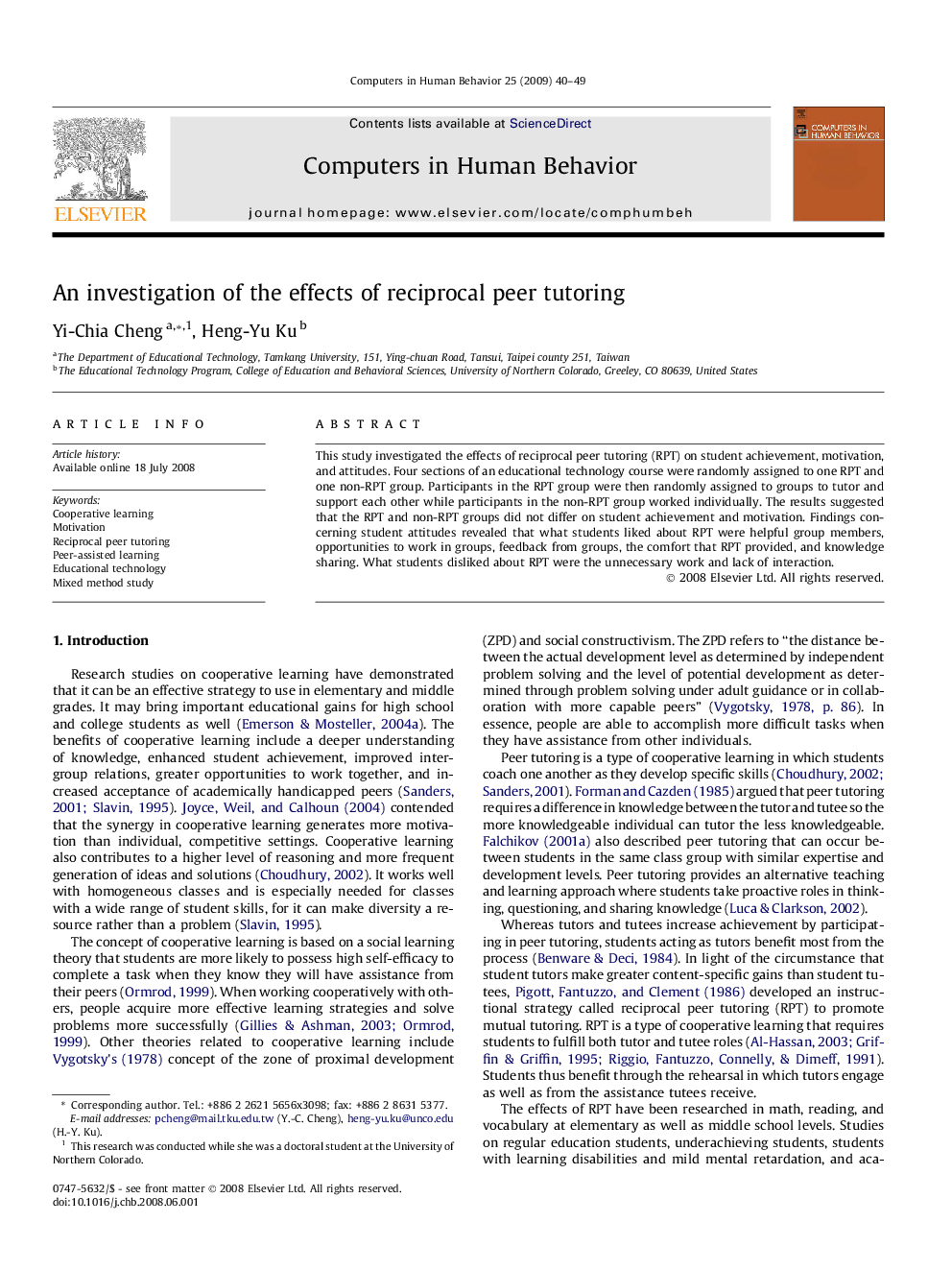| Article ID | Journal | Published Year | Pages | File Type |
|---|---|---|---|---|
| 352296 | Computers in Human Behavior | 2009 | 10 Pages |
This study investigated the effects of reciprocal peer tutoring (RPT) on student achievement, motivation, and attitudes. Four sections of an educational technology course were randomly assigned to one RPT and one non-RPT group. Participants in the RPT group were then randomly assigned to groups to tutor and support each other while participants in the non-RPT group worked individually. The results suggested that the RPT and non-RPT groups did not differ on student achievement and motivation. Findings concerning student attitudes revealed that what students liked about RPT were helpful group members, opportunities to work in groups, feedback from groups, the comfort that RPT provided, and knowledge sharing. What students disliked about RPT were the unnecessary work and lack of interaction.
